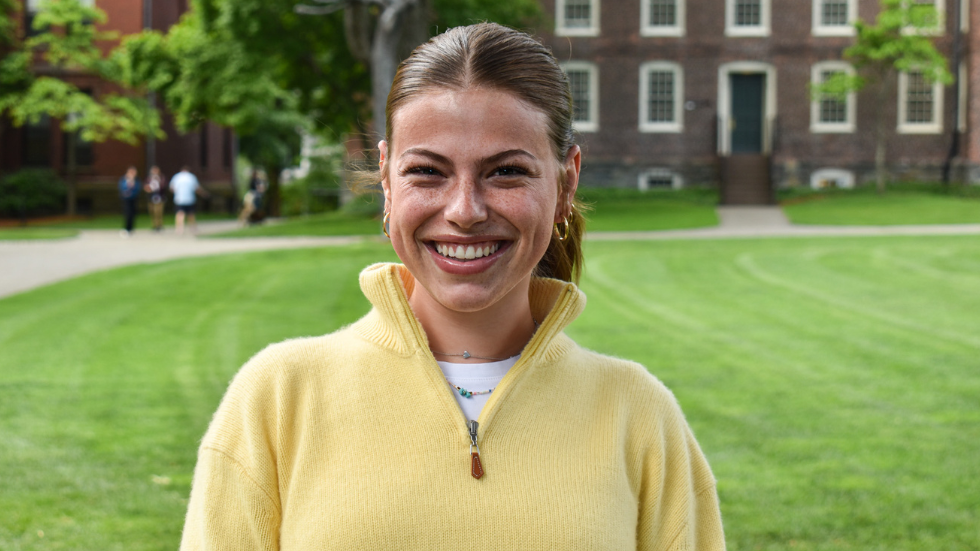Name: Alexa Kastner
Hometown: Montreal, Quebec, Canada
Program: Urban Education Policy
Education: Bachelor of Commerce, Honors in Economics from Mount Allison University
What drew you to the UEP program at Brown?
I’ve always been passionate about education, and the UEP program stood out to me because of its strong internship component. It offers the perfect balance of theory and practice, allowing me to gain hands-on experience while deepening my understanding of educational systems and policy in a meaningful way.
What has been your favorite UEP class and why?
My favorite class has been an independent study I’m doing with another UEP student under the guidance of Professor Pierre de Galbert. I’m deeply interested in international education, and this opportunity allowed me to design a course based on an existing one that didn’t fit my schedule. It has been an incredibly rewarding experience, giving me the flexibility to explore a topic I’m passionate about in a more personalized and in-depth way.
Where is your internship placement, and what are you working on?
I’m interning at the Annenberg Institute, where I work on the Brown Tutoring Corps—a program that trains and places over 200 Brown University students in Providence-area schools each year. My role involves data collection and ensuring the program follows best practices for high-impact tutoring. I’ve also had the opportunity to tutor, which has given me valuable firsthand insight into the program’s real-world impact.
What do you hope to accomplish through the UEP program?
I hope to develop a deeper, more nuanced understanding of education policy while gaining hands-on experience in the field. My goal is to bridge the gap between theory and practice, equipping myself with the tools to drive meaningful and equitable change in education.
How did your undergraduate education and any previous work experience lead or motivate you to pursue a master’s in urban education policy?
With a background in economics and business, I initially pursued a corporate career but quickly realized it lacked the sense of purpose I was seeking. My passion for education led me to shift my focus toward policy, where I could apply my analytical skills to tackle systemic challenges and work toward creating more equitable educational opportunities.
